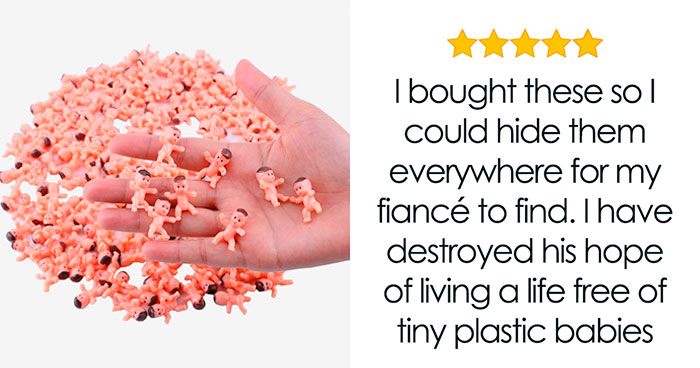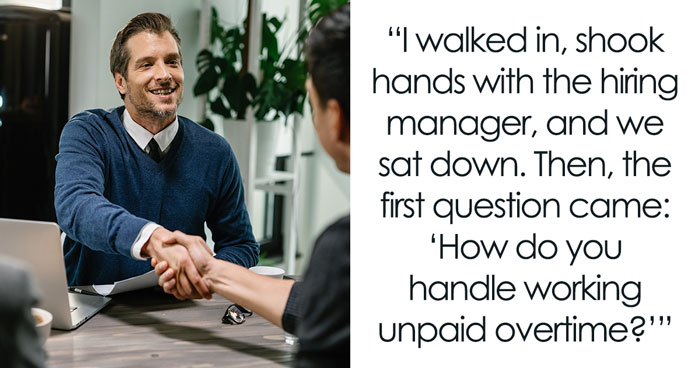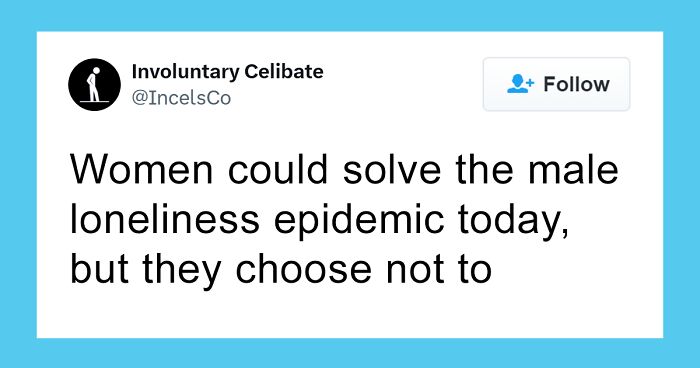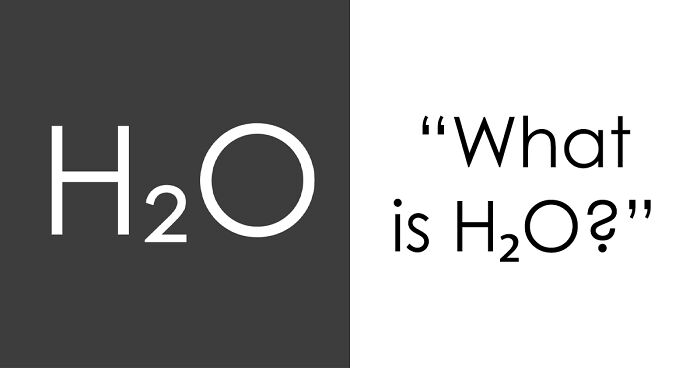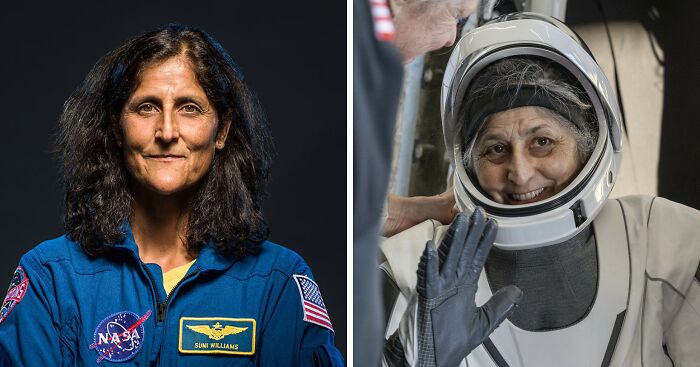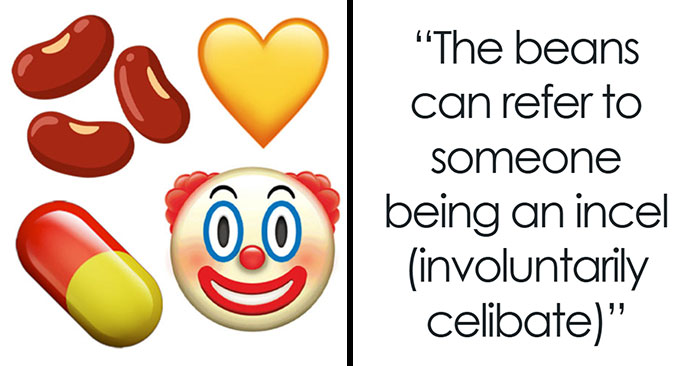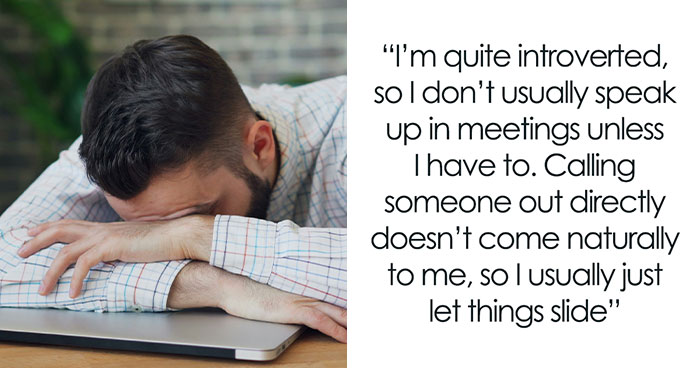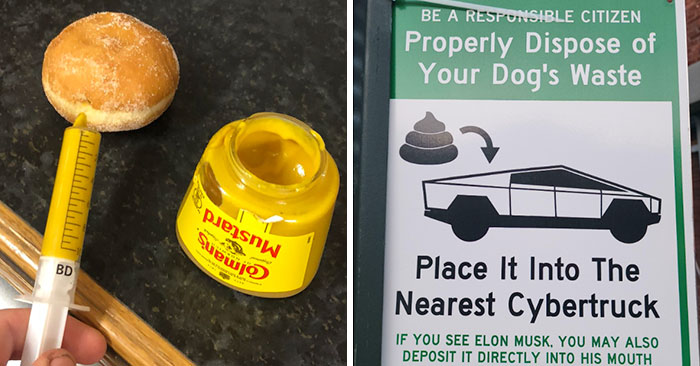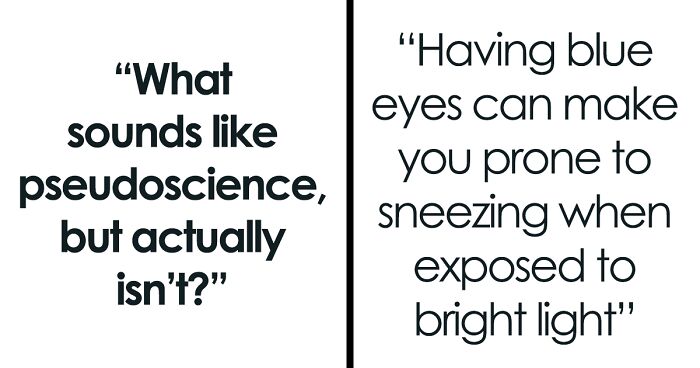
“Redheads Need More Anesthesia”: 27 Incredibly Weird Phenomena That Seem Too Fake To Be True
Interview With ExpertThe world is full of mysteries, some of which we understand and others that we’re still figuring out. From all the incredible things that happen on our planet, some just seem way too far-fetched to be true. Almost like they can’t be backed up by scientific evidence.
That’s why we put together this list of weird phenomena and crazy happenings that seem extremely fake but are actually real. You better clear your schedule because some of these posts might lead you down an intense rabbit hole of research.
More info: Reddit
This post may include affiliate links.
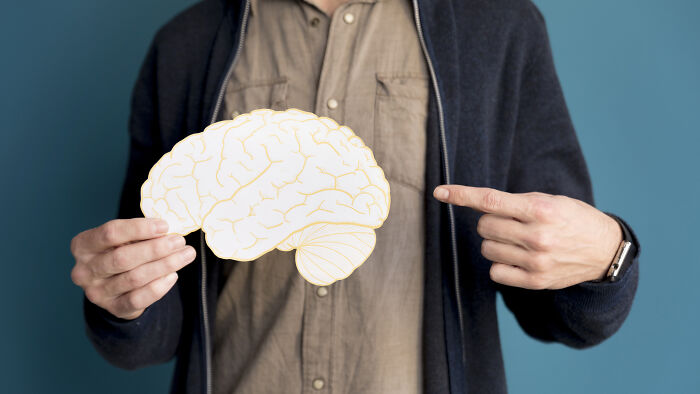 Most of psychology and neurology sound like absolute b******t once you read into at first, and then there’s just this disgusting mountain of evidence in your face. Like just look at ADHD, for an ADHD person the reason they didn’t do something can QUITE LITERALLY be “my brain didn’t *let* me do it” and it’s not bs, like it’s a thing called executive dysfunction which is the brain not know what or how to do something or start or a lot of other things and then just doesn’t.
Most of psychology and neurology sound like absolute b******t once you read into at first, and then there’s just this disgusting mountain of evidence in your face. Like just look at ADHD, for an ADHD person the reason they didn’t do something can QUITE LITERALLY be “my brain didn’t *let* me do it” and it’s not bs, like it’s a thing called executive dysfunction which is the brain not know what or how to do something or start or a lot of other things and then just doesn’t.
It the outside observer it looks like laziness, and that they’re just slacking off scrolling their phone or watching stuff, but inside is an entire monologue of said person screaming at themselves to just do the thing, but they can’t. It’s also not just for important or menial tasks, they’ll “procrastinate” on things they want to do, like playing a video game or reading a good book. It can often feel like “Locked In Syndrome” a condition where you’re locked inside your own body as an observer.
As a person with AuDHD I can confirm. My mom is my executive officer in a literal sense to manage those things my brain simply refuses to do
 The illusory truth effect.
The illusory truth effect.
People will believe something *just* because it is repeated, even when they know that what's being said is not true.
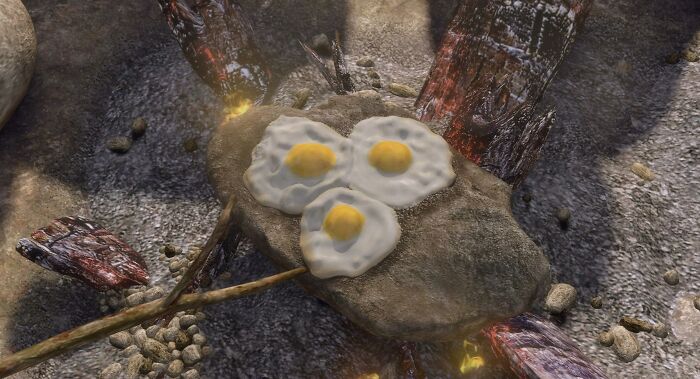 You absorb more nutrients from cooked eggs than you do from raw eggs. People don’t believe it because cooking eggs actually does reduce the amount of nutrients. BUT cooking them changes the protein structures and makes it easier for your body to actually absorb them. It’s called Protein Denaturation and it increases the bioavailability of the proteins. Bioavailability describes what is actually available for your body to digest and absorb.
You absorb more nutrients from cooked eggs than you do from raw eggs. People don’t believe it because cooking eggs actually does reduce the amount of nutrients. BUT cooking them changes the protein structures and makes it easier for your body to actually absorb them. It’s called Protein Denaturation and it increases the bioavailability of the proteins. Bioavailability describes what is actually available for your body to digest and absorb.
More nutrients doesn’t necessarily mean more bioavailability and less nutrients doesn’t necessarily mean less bioavailability.
The same thing happens with a lot of food. Especially plants, many of them have complex proteins that are more bioavailable when denatured.
So many examples on this list might sound absurd at first, until you try and uncover the truth behind them. Like the idea that your personality changes when you switch between languages. The idea behind it is that you might speak in a different language when going to a new environment or culture and that ultimately affects the way you express yourself.
Compared to that, pseudoscience doesn’t have evidence backing it and is almost always based on flimsy ideas. To understand the difference between what information’s real and what’s fake, Bored Panda reached out to Paul M. Sutter. He is a theoretical cosmologist, NASA advisor, and author of a book called ‘Rescuing Science: Restoring Trust in an Age of Doubt.’
The most important thing Paul told us about pseudoscience is that it “takes the surface tools of science, like complex jargon and fancy equipment, but misses the deeper soul, like skepticism and openness.”
 The effect on your dopamine receptors from fantasizing/ imagining things. I forget the exact term. As it turns out, you can achieve a pretty high dopamine response from fantasizing/ imagining/ talking about goals, which can provide your brain with enough happy chemicals to actually HINDER your drive to go and achieve those things for real. This sounds like b******t, but it’s true.
The effect on your dopamine receptors from fantasizing/ imagining things. I forget the exact term. As it turns out, you can achieve a pretty high dopamine response from fantasizing/ imagining/ talking about goals, which can provide your brain with enough happy chemicals to actually HINDER your drive to go and achieve those things for real. This sounds like b******t, but it’s true.
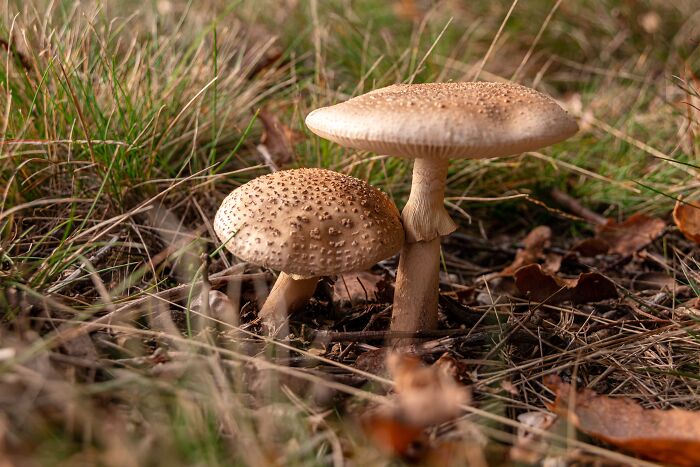 Mycelium. You're telling me the 'roots' of mushrooms act as a big message delivery system that not only allows information to be sent large distances across a single specimen but can also be used by connected TREES to communicate with each other and swap nutrients??? This is an oversimplification and mycelium absolutely does not think (isn't sentient) like humans do-- however, I am not exaggerating just how implausible it all sounds. There are some amazing mushroom documentaries out there and it still baffles me.
Mycelium. You're telling me the 'roots' of mushrooms act as a big message delivery system that not only allows information to be sent large distances across a single specimen but can also be used by connected TREES to communicate with each other and swap nutrients??? This is an oversimplification and mycelium absolutely does not think (isn't sentient) like humans do-- however, I am not exaggerating just how implausible it all sounds. There are some amazing mushroom documentaries out there and it still baffles me.
 That talk about you changing personalities when switching languages apparently has truth to it.
That talk about you changing personalities when switching languages apparently has truth to it.
So which language will make my personality bubbly and outgoing? German seems to make it gloomy and sarcastic
Across the globe, around 60% of folks believe that the average person in their country doesn't care about factual information and just believes what they want. That is quite worrisome, considering how easy it is to pass pseudoscience off as real science and how believable a lot of it seems.
That’s why we also contacted Melanie Trecek-King to share her views on this topic. Melanie is a speaker, writer, educator, and consultant specializing in critical thinking, information literacy, and science literacy. She is the creator of Thinking Is Power—which empowers individuals with skills to make better decisions and protect themselves from misinformation.
She is also an associate professor of biology at Massasoit Community College, the education director for the Mental Immunity Project and CIRCE (Cognitive Immunology Research Collaborative), and a fellow of the Committee for Skeptical Inquiry.
Melanie explained that “pseudoscience masquerades as science but doesn’t adhere to the rigorous processes that make science reliable. Pseudoscience is widespread and can be dangerous. To protect ourselves, we must understand its characteristics and why we’re vulnerable to it.”
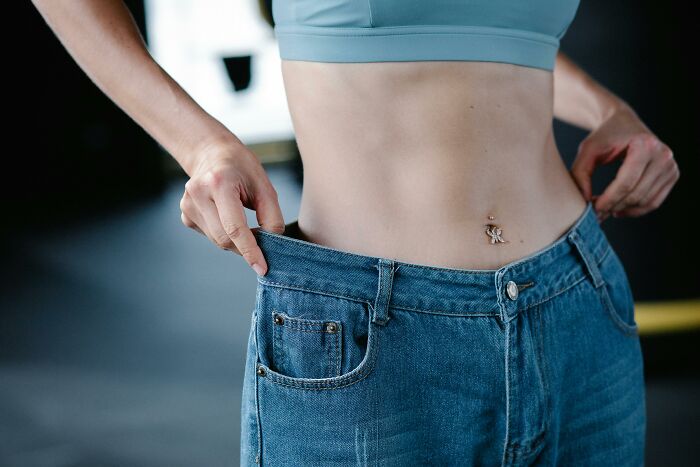 The bacteria in your intestine exist to digest the foods you usually eat. If you stop eating those foods, the bacteria will die, so they send a message to your brain, causing you to crave those foods. If you're trying to give up french fries, for example, it will take about 4 weeks to kill all the bacteria accustomed to digesting that food, and you will continue to crave it while they live.
The bacteria in your intestine exist to digest the foods you usually eat. If you stop eating those foods, the bacteria will die, so they send a message to your brain, causing you to crave those foods. If you're trying to give up french fries, for example, it will take about 4 weeks to kill all the bacteria accustomed to digesting that food, and you will continue to crave it while they live.
It also may be possible to lose weight by getting a fecal transplant from a thin person. The only problem is, it is also possible to get a mental illness (potentially) from that same person, so they should be screened carefully.
This explains why I just can't do without chocolate ... but how on Earth does a faecal transplant affect my mental health?
 Red heads need more Anaesthesia than non-read heads. (Not sure if this fits the bill, but it’s always been fascinating to me!).
Red heads need more Anaesthesia than non-read heads. (Not sure if this fits the bill, but it’s always been fascinating to me!).
 Eye movement desensitization and reprocessing (EMDR). essentially, you look at a moving light or object in the therapy room as you process painful memories (as in PTSD and related trauma disorders). it's very effective for most people and typically works faster than traditional therapeutic models. sometimes the relief is apparent even after one session.
Eye movement desensitization and reprocessing (EMDR). essentially, you look at a moving light or object in the therapy room as you process painful memories (as in PTSD and related trauma disorders). it's very effective for most people and typically works faster than traditional therapeutic models. sometimes the relief is apparent even after one session.
it's broadly applied, too. PTSD, anxiety disorders, phobia, dissociative disorders....EMDR is indicated for a wide variety of life challenges.
privately, i call it the "little miracle". there are times when it appears to be almost mystical, but then, the human mind is vast and endless, and we know very little about it.
Our brains are sometimes like computers and in PTSD it's like the memory got stored at the wrong place, where it's always accessed by mistake. It needs to be moved to another part of the brain where long term memories belong to fade away eventually
To simplify things for everyone and help distinguish between the facts on this list and misinformation, we asked Paul Sutter for tips. He said: “Here are my warning signs that you might just be encountering pseudoscience:
- Secrecy: science is open to critique and evaluation. Watch out for ideas that rely on some secret or arcane knowledge that only a select few have access to.
- Convoluted: even the most complex of scientific theories are straightforward and to the point. We always try to have as few steps and assumptions as possible to explain the data.
- Conspiracy: if an idea needs vast conspiracy to work, like there's some cabal of scientists and government officials trying to hide the ‘truth,’ it's probably not true.
- Static: science is always changing and updating with new evidence. Keep an eye out for ideas that haven't changed for decades or longer.”
 It’s not so much a pseudoscience as it is just good old fashioned, under funding for research but Gut microbiome health is way more than just the health of one’s gut.
It’s not so much a pseudoscience as it is just good old fashioned, under funding for research but Gut microbiome health is way more than just the health of one’s gut.
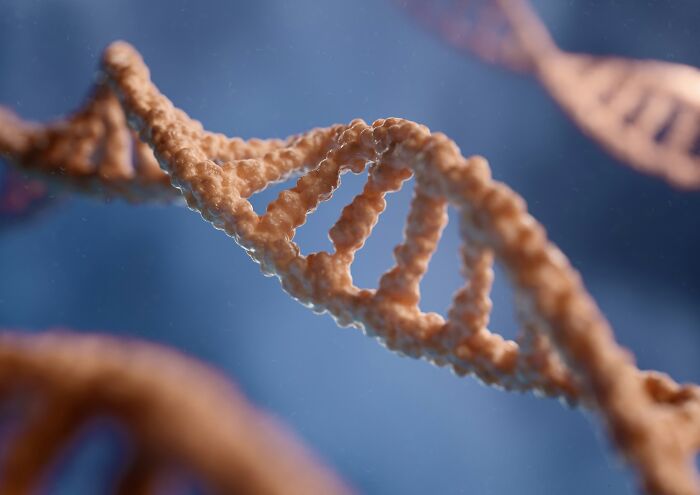 Ever heard of epigenetics? It sounds like pseudoscience with its talk of genes being turned on and off by environmental factors, but it’s a legit field of study. It’s all about how lifestyle and environment can influence gene expression without altering the DNA sequence itself.
Ever heard of epigenetics? It sounds like pseudoscience with its talk of genes being turned on and off by environmental factors, but it’s a legit field of study. It’s all about how lifestyle and environment can influence gene expression without altering the DNA sequence itself.
A lot of it is how long term stresses can change the chemical makeup of your cells, which can then essentially wake up dormant DNA. So, if you have the DNA for certain cancers, experiencing the right stresses for the right protracted amount of time can wake them up and start them multiplying. This can also affect babies in the womb, as the stresses change the chemical makeup of the mother’s cells she shares with the baby. Additionally, the stresses of womb placement for multiple births can affect it—-there’s usually one dominant baby who ends up getting the lion’s share of nutrients from the mother, leaving little to their siblings. Even monozygotic twins (identical) aren’t 100% identical, and become less so as they grow up, because of differing life experiences. That’s how you can have one twin develop cancer or schizophrenia, and the other not develop it at all. It’s a really fascinating science, and truly answers the nature or nurture questions, by proving that it is a combination of both that shapes us.
 Placebo effect - your mind can genuinely heal your body just by believing it works.
Placebo effect - your mind can genuinely heal your body just by believing it works.
Most of us aren’t scientists, which is why it can be hard to distinguish between fact and fiction. Melanie Trecek-King explained that “the line between science and pseudoscience isn’t always clear, but there are a few telltale signs. Unlike scientific claims, many pseudoscientific claims are so vague that they can’t be tested.”
“By using overly broad statements (promotes vibrant health and wellness) or appealing to energies or spiritual forces (rebalances the body’s energy fields), pseudoscientific claims are difficult or impossible to verify. Pseudoscience promoters create an aura of mystery and encourage us to interpret their claims based on our hopes and desires,” Melanie explained.
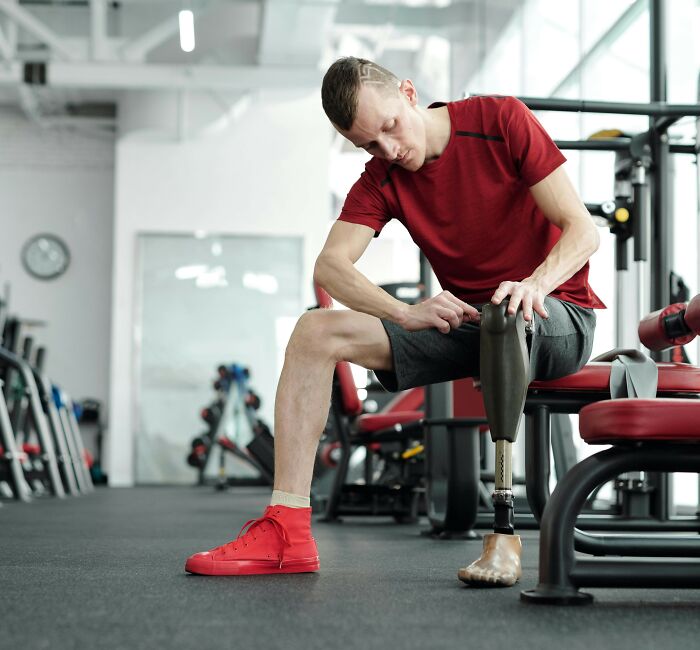 When an amputee is experiencing phantom limb pains, massaging their stump and then the space where the limb was actually does help reduce the pains, especially if the person is already on the maximum dosage of pain meds and can't have anymore. Hearing the hands against the sheets where the limb would be tricks the brain into thinking that it's still there, so it stops the nerves from overfiring as much.
When an amputee is experiencing phantom limb pains, massaging their stump and then the space where the limb was actually does help reduce the pains, especially if the person is already on the maximum dosage of pain meds and can't have anymore. Hearing the hands against the sheets where the limb would be tricks the brain into thinking that it's still there, so it stops the nerves from overfiring as much.
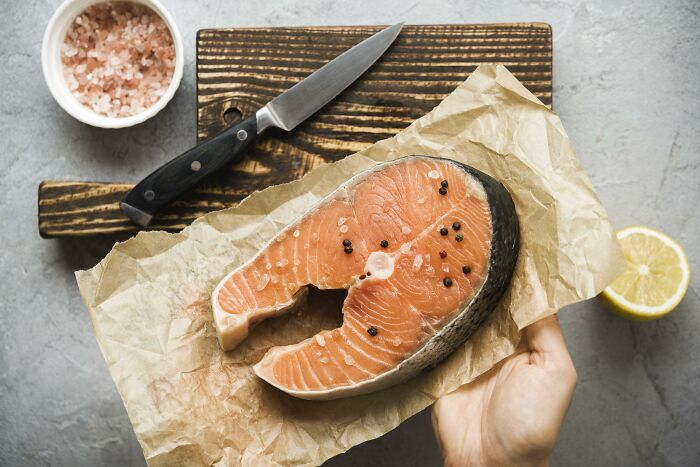 I'm no expert but this is based on my firsthand experience:
I'm no expert but this is based on my firsthand experience:
Taking vitamin D supplements makes me feel *significantly* less depressed. Like, I have the potential to be normal, if I've consistently taken it. And if I haven't, I will definitely be depressed, even if everything else is going great.
Now, vitamins aren't exactly pseudo-science. They are, in fact, *actual science*. But I had a hard time taking certain people seriously about them.
But damned if it doesn't make a demonstrative difference in my life.
My dad who was a doctor worked in a nursing home. He would prescribe vitamins to his patients at double the recommended FDA amounts. He said that elderly people were more likely to take the vitamins if they were prescribed and that they needed all that nutrition since they didn't get it in their diet.
 Having blue eyes can make you prone to sneezing when exposed to bright light.
Having blue eyes can make you prone to sneezing when exposed to bright light.
I have eyes so dark they're almost black and still sneeze in bright light. The photopic sneeze reflex is due to our optical nerve being very close to the trigeminus nerve coming from the nasal cavity. When the optic nerve gets excited, the trigeminus gets excited alongside it and the result is a sneeze
If you take one thing from this list, it should always be to question the information that comes your way. A very important point that Melanie mentioned is: “Pseudoscientific beliefs are motivated by a desire to believe, often due to identity needs or wishful thinking. Hope is powerful, and it can overwhelm our critical thinking faculties.”
“Remember, true scientific claims are supported by rigorous evidence and are open to scrutiny and debate. By being aware of how pseudoscience can fool us, we can better protect ourselves from falling prey to its deceptive allure,” she added.
Let us know if you’ve got any examples of things that sound like pseudoscience but actually aren’t. Be warned: diligent Pandas will definitely fact-check you!
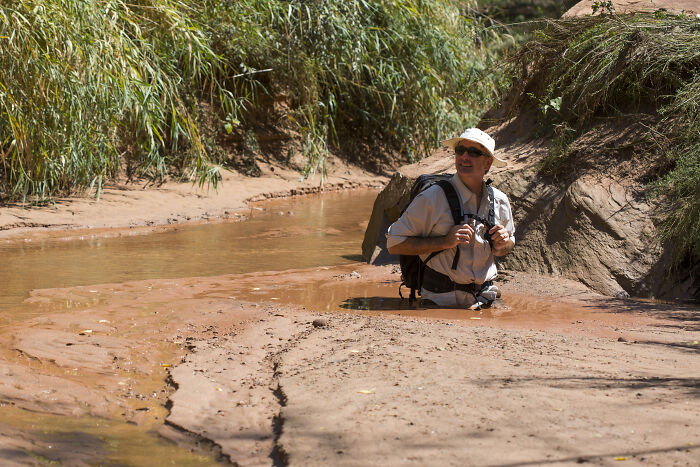 It's really hard to drown in quicksand, but rather easy in a grain silo.
It's really hard to drown in quicksand, but rather easy in a grain silo.
Quicksand can trap you, then you drown when the tide comes in. I live near a part of the coast where this is a very real risk (we have very wide and fairly flat beaches). I also live near a couple of lifeboat stations equipped to rescue people who do get trapped like that. I've seen a documentary on the telly where the presenter volunteered to get trapped by what they typically call "soft sand", and watched how they freed her leg - local to me in NW England. It's genuinely scary stuff and nothing like the Hollywood version.
 The lead-crime hypothesis. There was a massive increase in violent crime in a lot of countries between the 60s and the 90s that then disappeared, correlating with the addition and removal of leaded gasoline. You can google some studies that show a range of results, and there’s a good magazine article here. https://www.motherjones.com/kevin-drum/2018/02/an-updated-lead-crime-roundup-for-2018/.
The lead-crime hypothesis. There was a massive increase in violent crime in a lot of countries between the 60s and the 90s that then disappeared, correlating with the addition and removal of leaded gasoline. You can google some studies that show a range of results, and there’s a good magazine article here. https://www.motherjones.com/kevin-drum/2018/02/an-updated-lead-crime-roundup-for-2018/.
It also had to do with taking lead out of paints used to paint the inside and outside of houses and apartments. When paint oxidizes, it turns to a fine dust that can be inhaled. Additionally, we all know how babies go through a phase where everything goes in their mouths. They found that paint chips that fell in their reach also were ingested. Just like we removed asbestos from our insulation, we removed lead from our paint—-and both were given time limits for abatement that have now long ago passed. If you ever come across old asbestos insulation or leaded paint, you have to have it correctly removed by professionals, and replaced with new. (I worked in real estate when the bulk of the abatement jobs were happening.)
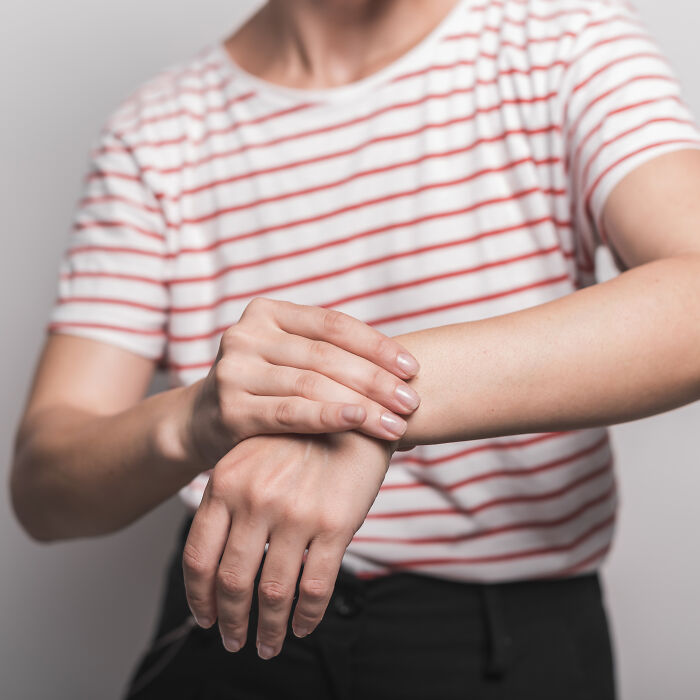 Crazy to think cooling your wrist, behind the knee or inside elbow can cool the whole body due to blood proximity to the surface.
Crazy to think cooling your wrist, behind the knee or inside elbow can cool the whole body due to blood proximity to the surface.
I remember learning to run cold water over my wrists to cool my hands when working with pastry. A school cookery lesson in about 1978.
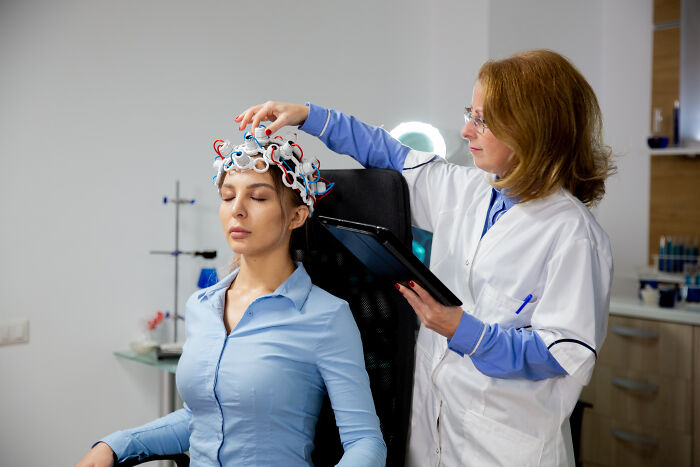 VISUALIZING AND MIRROR NEURONs!! Research has showed that visualizing is actually incredibly powerful. It activates both motor neurons and mirror neurons. Watching someone do a squat with good form and visualizing yourself executing that same motion with good form are almost the same to your brain as physically doing it.
VISUALIZING AND MIRROR NEURONs!! Research has showed that visualizing is actually incredibly powerful. It activates both motor neurons and mirror neurons. Watching someone do a squat with good form and visualizing yourself executing that same motion with good form are almost the same to your brain as physically doing it.
So if you’re working out, learning a dance etc. watch videos of other people doing it. Close your eyes and visualize yourself doing it, moving through the motion and then when you go to do it, it will be easier!
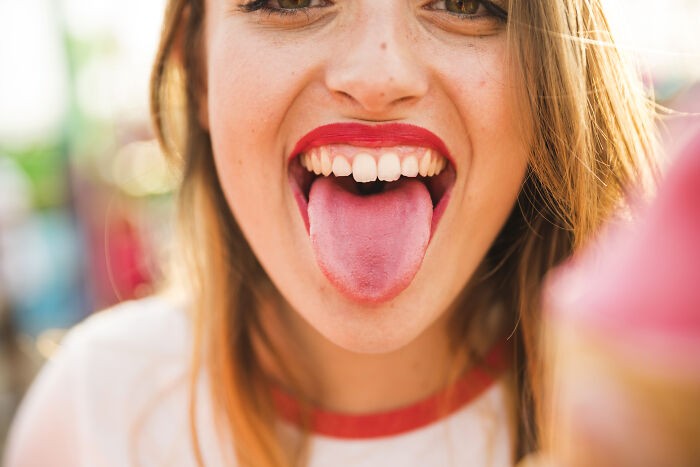 Seeing with your tongue is possible by wearing a special helmet with a camera and an electric plate on your tongue that transmits low-voltage signals via the plate. The brain will interpret that information through the visual cortex.
Seeing with your tongue is possible by wearing a special helmet with a camera and an electric plate on your tongue that transmits low-voltage signals via the plate. The brain will interpret that information through the visual cortex.
The technique has also been used to help people with a malfunctioning cerebellum by helping them restore their balance.
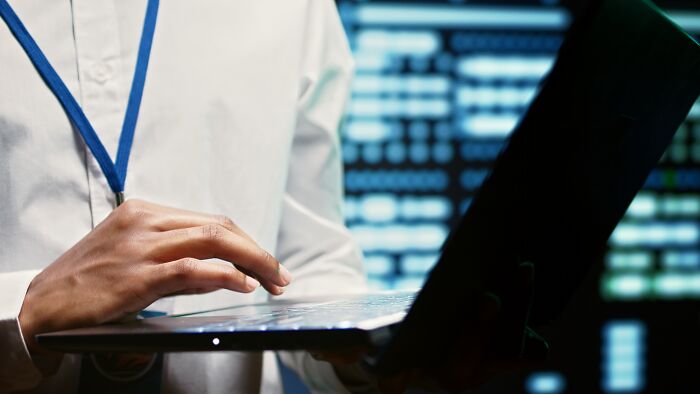 Quantum mechanics. All of it, but especially antimatter and the way the little bits pop in and out of existence.
Quantum mechanics. All of it, but especially antimatter and the way the little bits pop in and out of existence.
 If you hold a pencil between your teeth, forcing your mouth into a grin-like shape, it will make you evaluate your mood more positively. Your brain responds to body movements and postures, and this way you can trick the brain into thinking you've been smiling all day.
If you hold a pencil between your teeth, forcing your mouth into a grin-like shape, it will make you evaluate your mood more positively. Your brain responds to body movements and postures, and this way you can trick the brain into thinking you've been smiling all day.
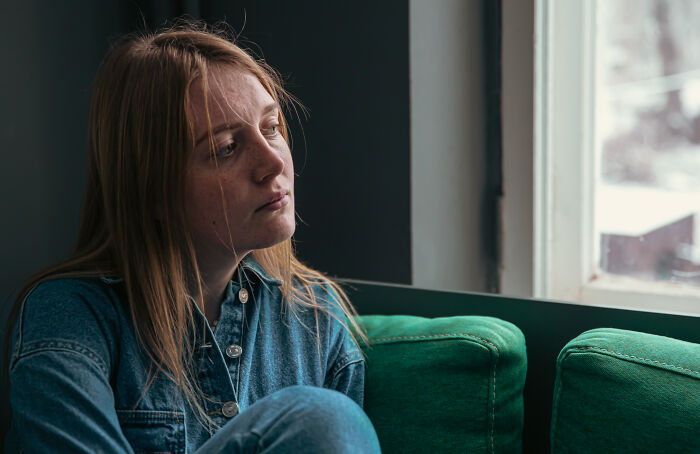 Transcranial Magnetic Stimulation for depression.
Transcranial Magnetic Stimulation for depression.
I told my doctor it sounded like pseudoscience once a long time ago, but I later found out that it really is a legit thing.
I haven't actually done it myself though, and I've heard personal reviews on both ends of the spectrum.
 Fascia. Biology and anatomy ignored it until pretty recently, and it's probably the #1 cause of most general pain and aches.
Fascia. Biology and anatomy ignored it until pretty recently, and it's probably the #1 cause of most general pain and aches.
What is fascia? Fascia is a thin casing of connective tissue that surrounds and holds every organ, blood vessel, bone, nerve fiber and muscle in place. The tissue does more than provide internal structure; fascia has nerves that make it almost as sensitive as skin. . . . . . . . https://www.hopkinsmedicine.org/health/wellness-and-prevention/muscle-pain-it-may-actually-be-your-fascia#:~:text=What%20is%20fascia%3F,almost%20as%20sensitive%20as%20skin.
 That cosmic rays (neutrinos) are responsible for a lot of random computer errors. The smaller components are and the less electricity the need makes them more susceptible to interference. They carry very little electrical charge but enough to flip zeros to ones. The wrong flip, and oops not working correctly.... temporarily. This is why turning things off and on again fixes so many issues.
That cosmic rays (neutrinos) are responsible for a lot of random computer errors. The smaller components are and the less electricity the need makes them more susceptible to interference. They carry very little electrical charge but enough to flip zeros to ones. The wrong flip, and oops not working correctly.... temporarily. This is why turning things off and on again fixes so many issues.
Neutrinos do not carry any electric charge - that's why they are called neutrinos (tiny neutral ones in Italian). Also, although some of them come in large numbers from the Sun (and other cosmic sources), usually they are not considered as cosmic rays, due to extremely low chance of interacting. Cosmic rays close to Earth's surface are composed mostly of muons.
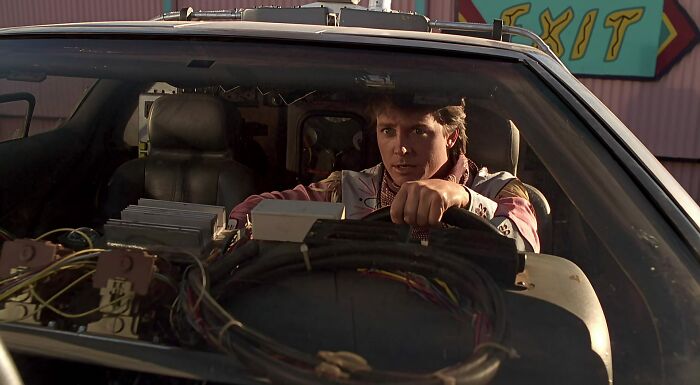 Time moves slower closer to center of masses. So if you were to fly around the world, you're time traveling.
Time moves slower closer to center of masses. So if you were to fly around the world, you're time traveling.
https://en.wikipedia.org/wiki/Hafele%E2%80%93Keating_experiment.
GPS has to allow for this on the satellite clocks. It's complicated ;-)
Poll Question
Which of the phenomena mentioned in the article did you find most intriguing?
Redheads needing more anesthesia
Animals predicting natural disasters
Human echolocation
Other
A recent NIH article stated, people in colder regions don't get cataracts
Because the sun isn't as bright. I've had a sensitivity to light my whole life. I got cataracts in my 40s.
Load More Replies...A recent NIH article stated, people in colder regions don't get cataracts
Because the sun isn't as bright. I've had a sensitivity to light my whole life. I got cataracts in my 40s.
Load More Replies...
 Dark Mode
Dark Mode 

 No fees, cancel anytime
No fees, cancel anytime 




















